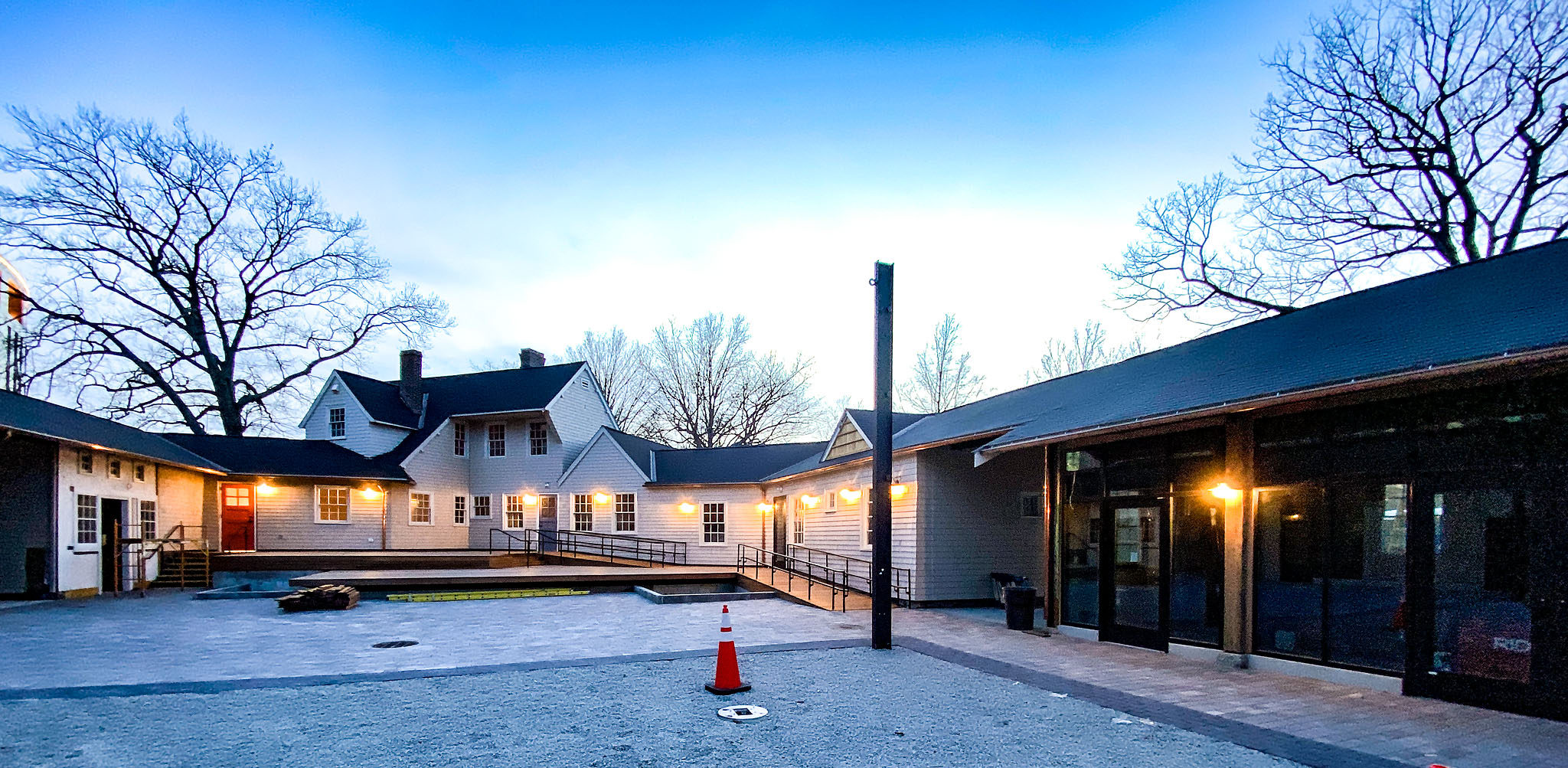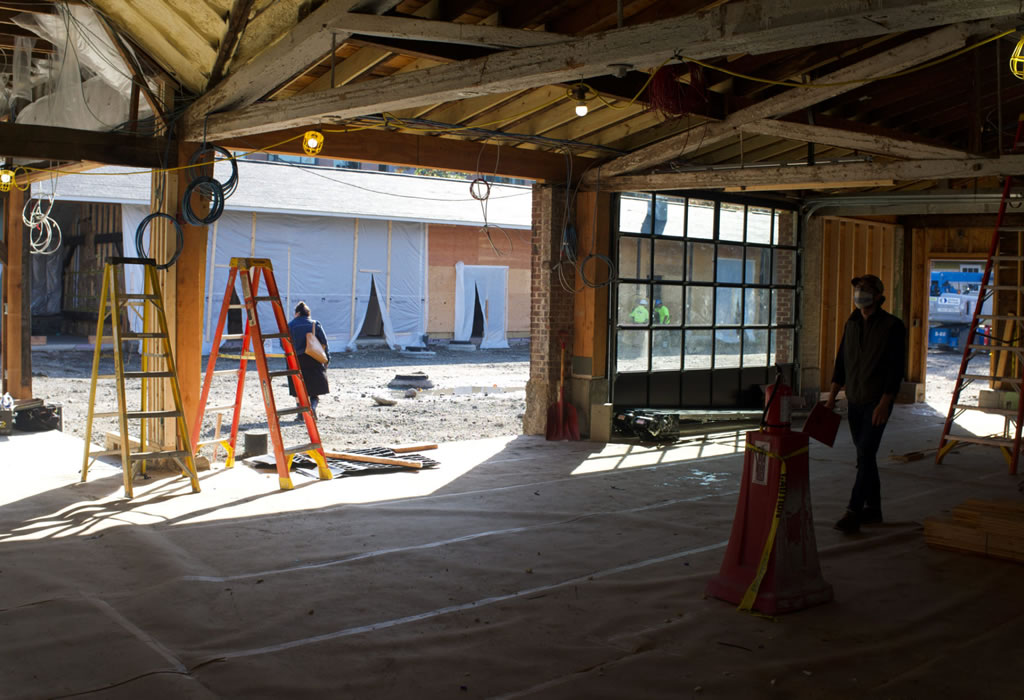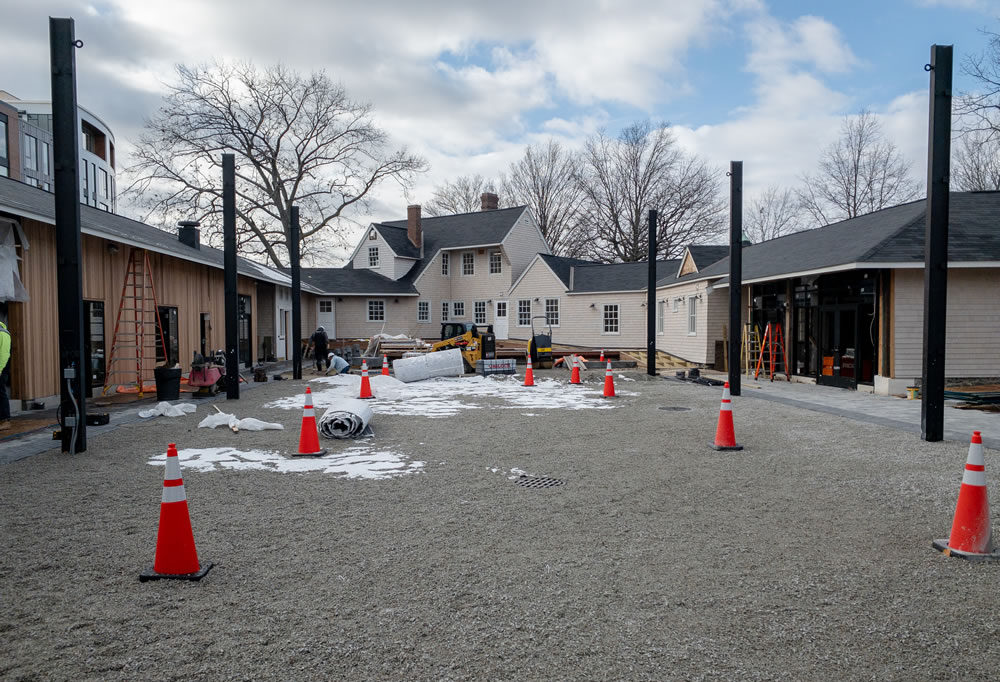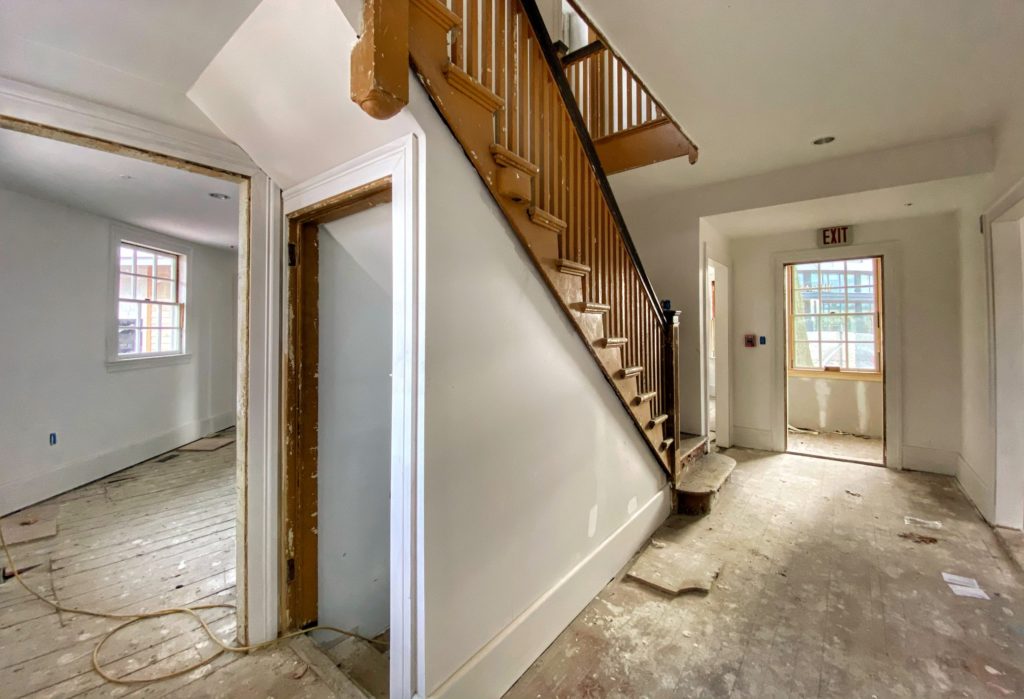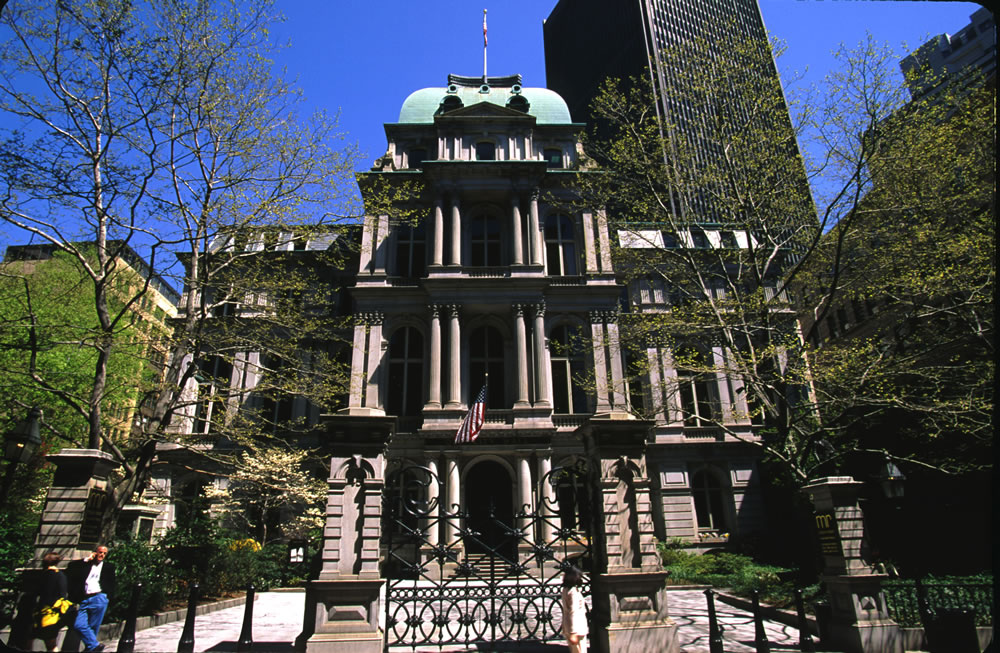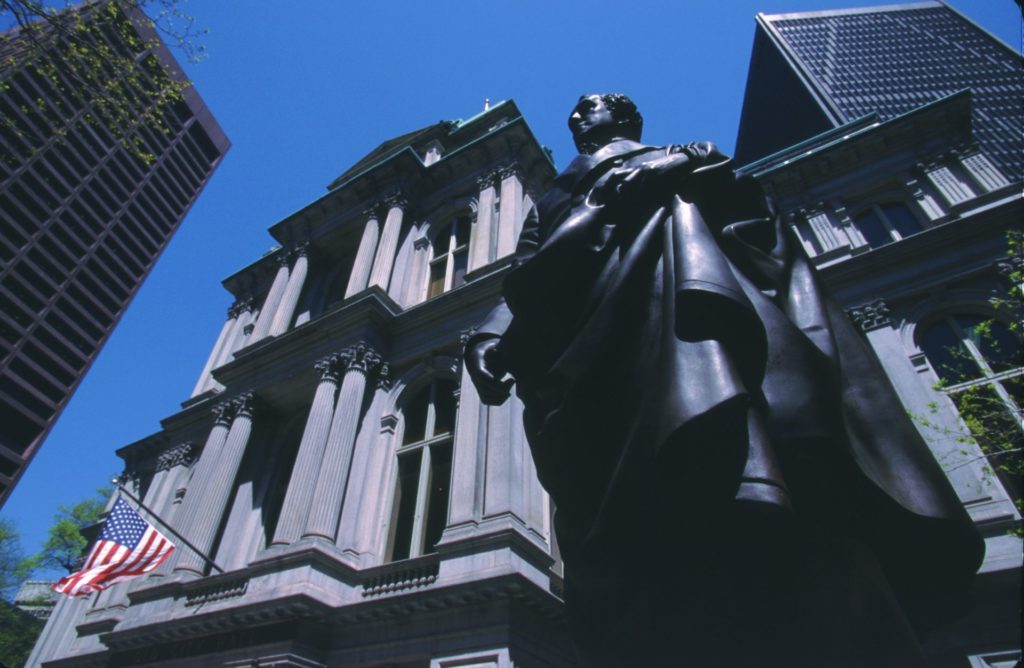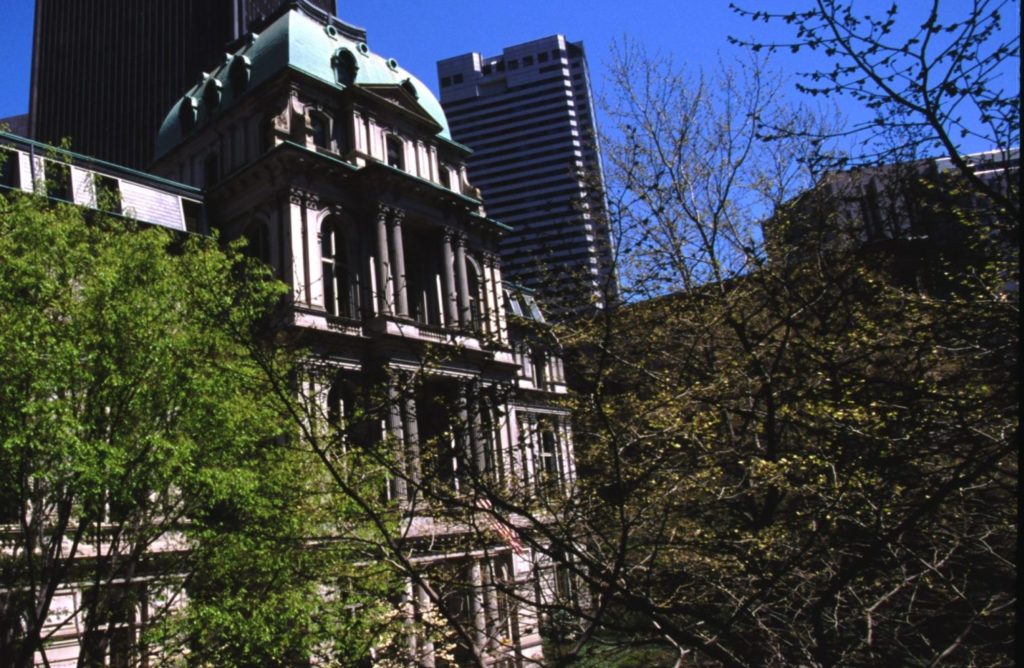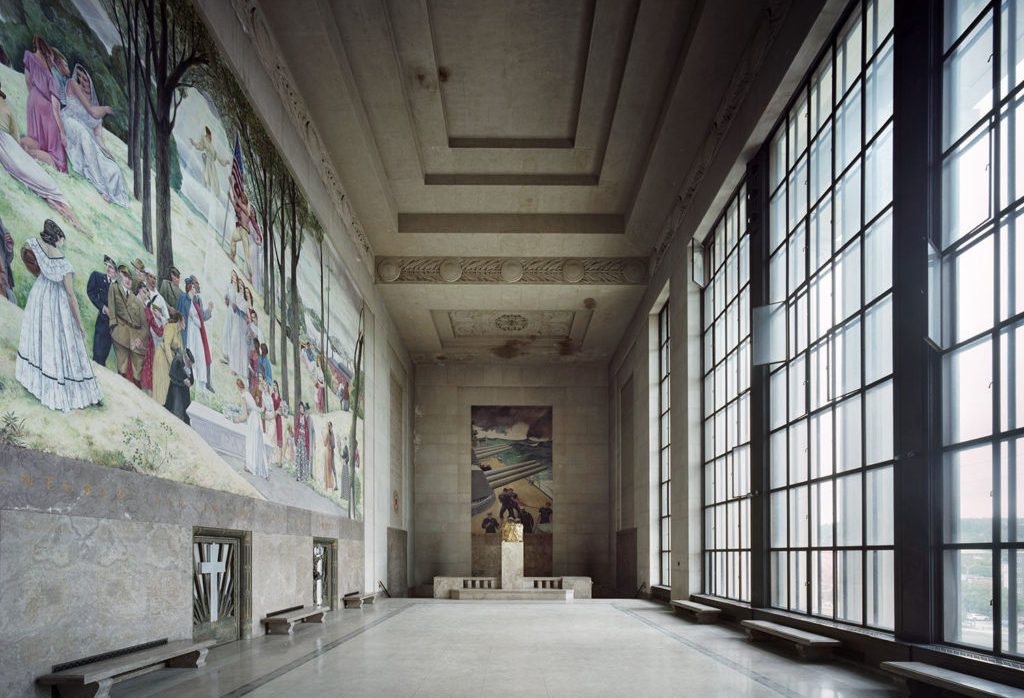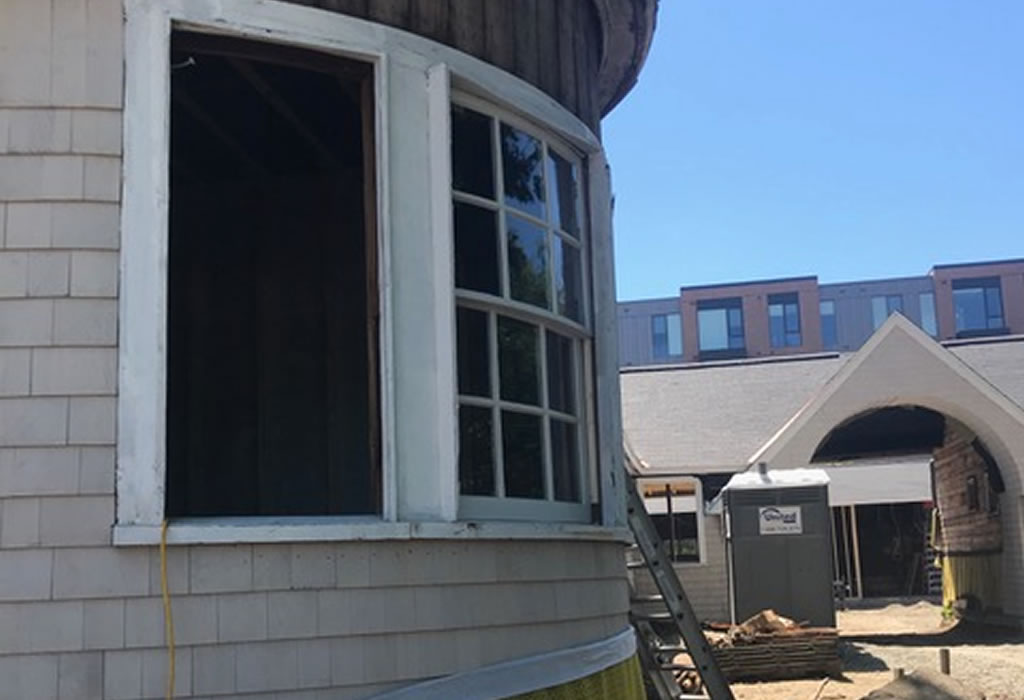The Speedway Progress Update: May 2021

The past few months have flown by, and The Speedway is almost ready to open! The site has changed so much since our New Year’s update: the courtyard has been made habitable, and the building interiors are well on their way there, too. Our anchor tenant, Notch Brewing, has started to outfit its space with machinery that wouldn’t be out of place in a steam-punk movie in preparation for its first small batches of Brighton-made beer. We’ve begun the process of moving our office from downtown Boston’s Old City Hall to The Speedway to be closer to the people we serve. Just last week, we introduced our newest vendor and put out a call for Allston-Brighton nonprofits to occupy a portion of the available office space. And soon we’ll announce an exciting group of creative operators who will fill the retail bays and help to turn The Speedway into the vibrant community gathering place we always envisioned it would be. Here’s a breakdown of the progress we made over the past four months:
1. Courtyard Is Complete
At long last, The Speedway’s courtyard looks like a space for people to have fun. Underground utilities, including a state-of-the-art, eco-friendly stormwater mitigation system, have been covered with gravel and beautifully patterned paving stones. A complex-wide sound system was installed to allow visitors to enjoy music while relaxing in the courtyard. Lamps and heaters were installed, ensuring year-round access to this outdoor area – a great idea during normal times that became absolutely critical in light of the pandemic. Speaking of accessibility, the decks, ramps, and handrails are ready for a steady stream of visitors of all ages and abilities. We’ve installed signage throughout the complex to orient visitors to the space and its history. All that’s left is for the beer garden furniture to arrive from Germany!
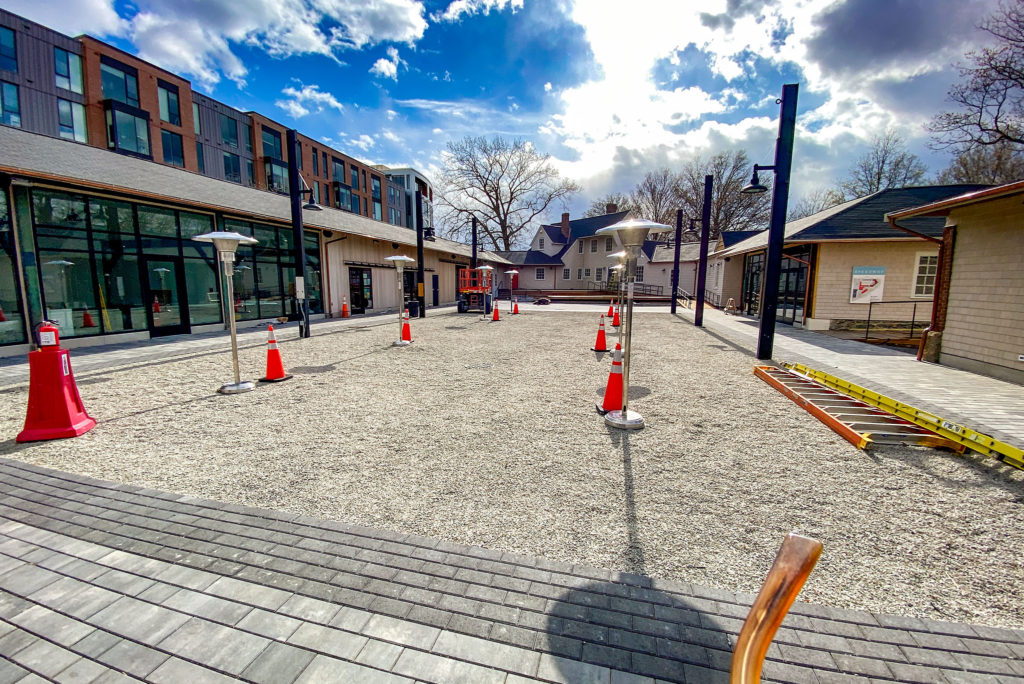
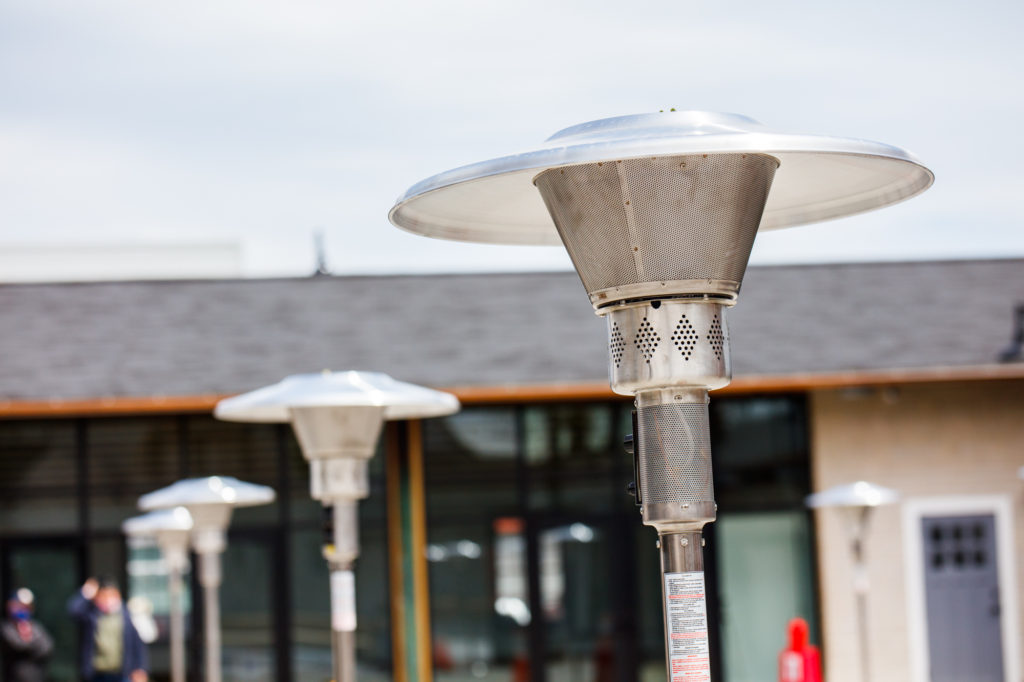
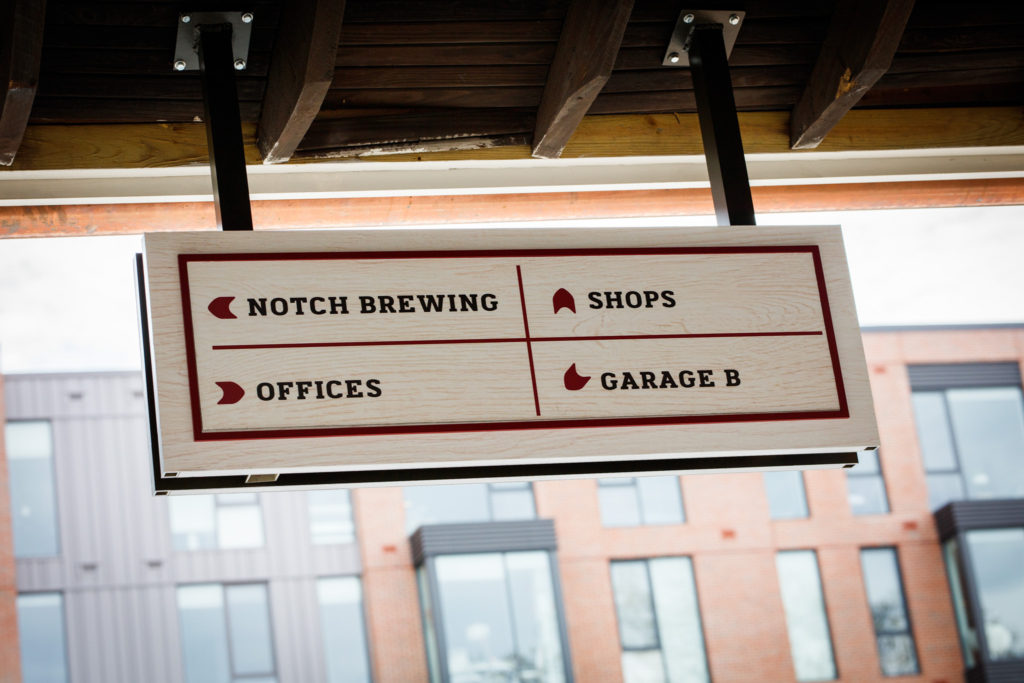
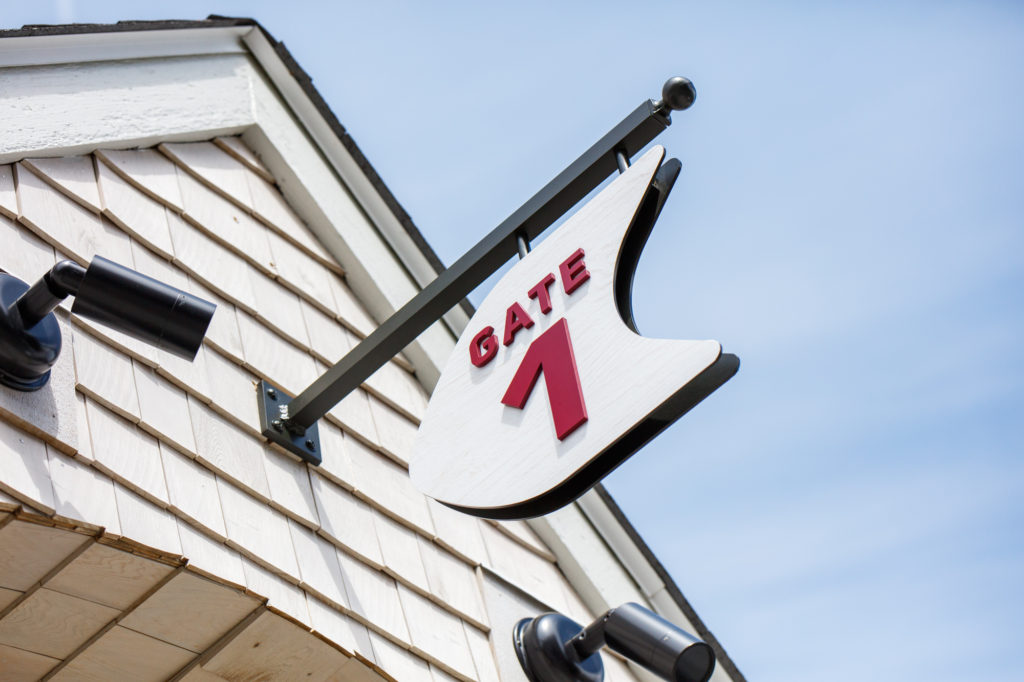
2. Notch Fit-Out
On April 22, The Speedway received an exciting delivery all the way from Vancouver: a control stand and brewing tanks for Notch’s Brighton location. This equipment brings much more than a steam-punk vibe to project. The control stand (left) regulates all process flow while turning grain into malt sugar before fermentation; the vertical cylindrical tanks (right, at left) are where the beer ferments; and the stacked cylindrical tanks (far right) are for lagering/ maturation. Once the beer is brewed, it will be served fresh in Notch’s new taproom, which is also nearing completion. The bar and seating area are under construction, and the space is being finished. We’re thrilled to see our anchor tenant’s space come together and look forward to seeing it bustle with activity in the months ahead.
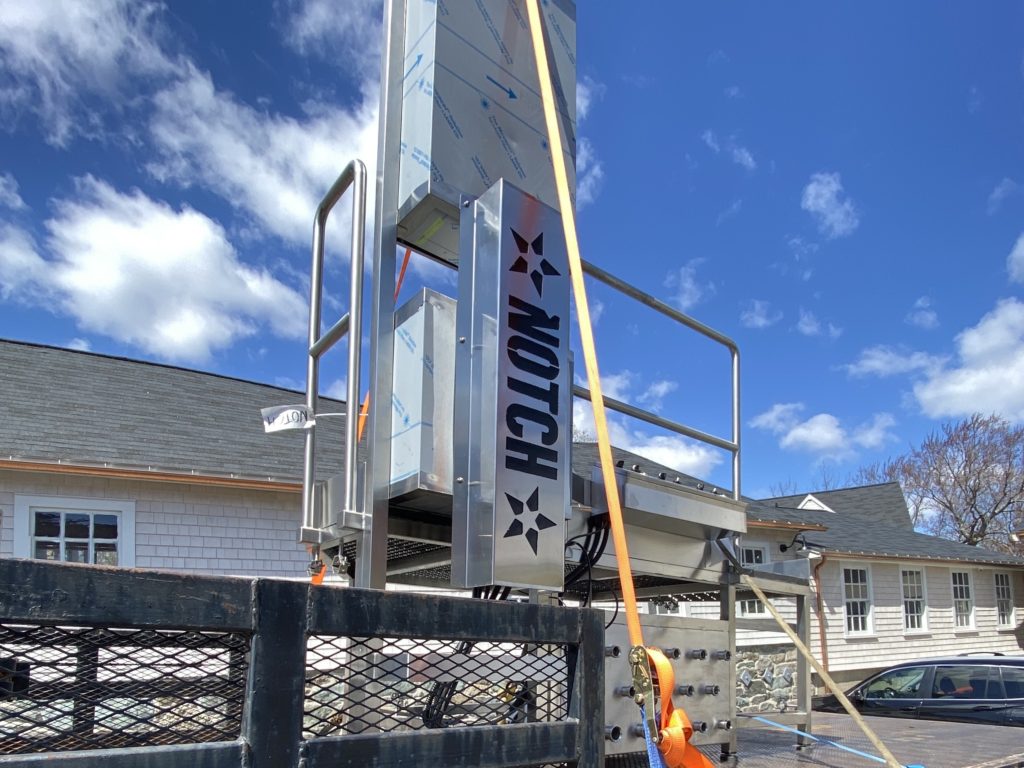
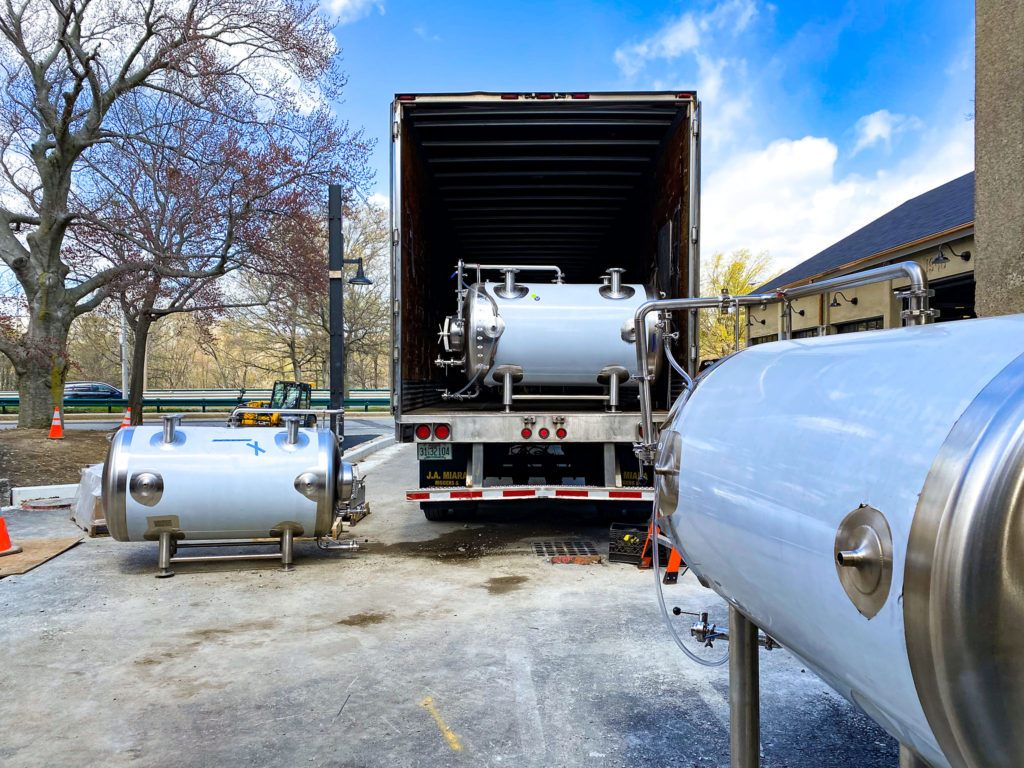
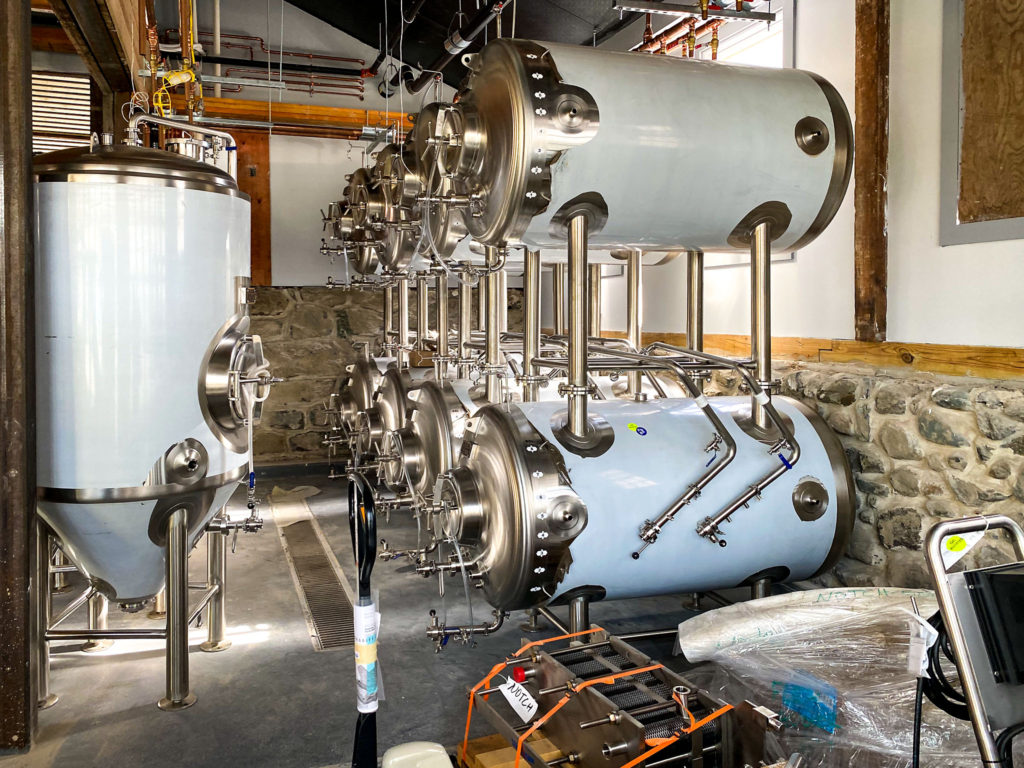
3. Garage B at The Speedway
Introducing our event space, Garage B at The Speedway! The name for this 1940s-era garage was the subject of several intensive brainstorming sessions, during which we considered a range of possibilities, including The Annex and The Loft. But since the space is neither of these things, we settled for good, old historical authenticity. Garage B offers 3,300 sq ft of interior space and 1,700 sq ft of private courtyard space, and can accommodate up to 240 people. The building’s large garage doors open to the outside, providing the option of significant airflow for those taking extra COVID precautions. Now that Massachusetts is beginning to open up, we’re taking reservations for private, community, and corporate events for mid-June and beyond.
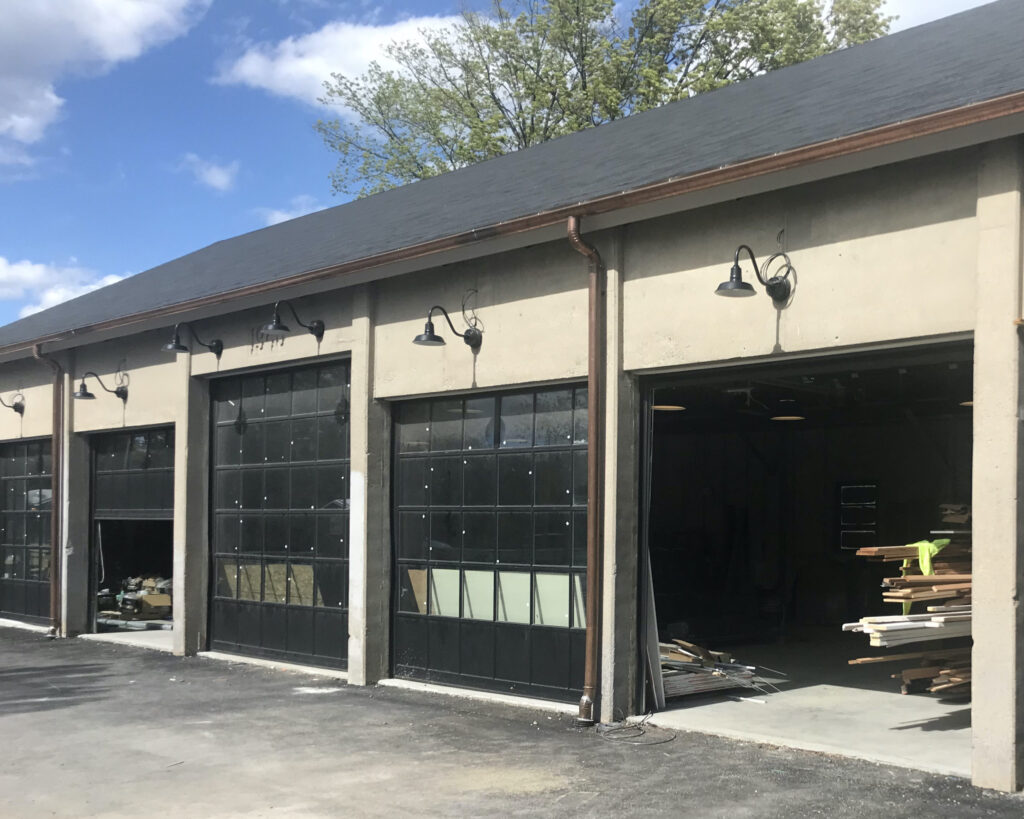
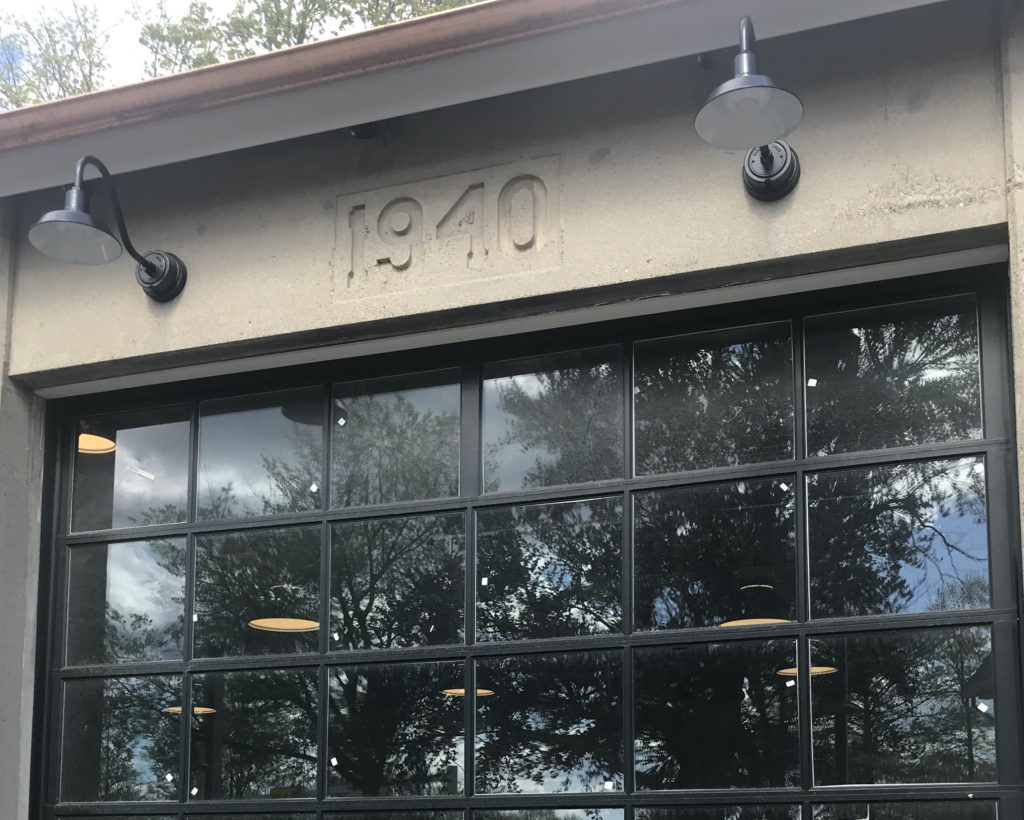
4. Office Space Available
One thing the pandemic has taught us is that there’s no replacement for in-person interaction. Several office and co-working spaces are available to rent in Buildings F and G, which includes a shared conference room and kitchen area. Tenants will be able to take advantage of The Speedway’s high-speed internet, which will extend throughout the complex to serve the visiting public in the courtyard and events in Garage B. In keeping with the legislation that allowed AHF to lease the property from DCR, we’re offering 300 sq ft of heavily discounted office space to an Allston-Brighton nonprofit. And we recently announced that we’re moving our own offices from Boston’s Old City Hall to The Speedway to be closer to the communities we serve.
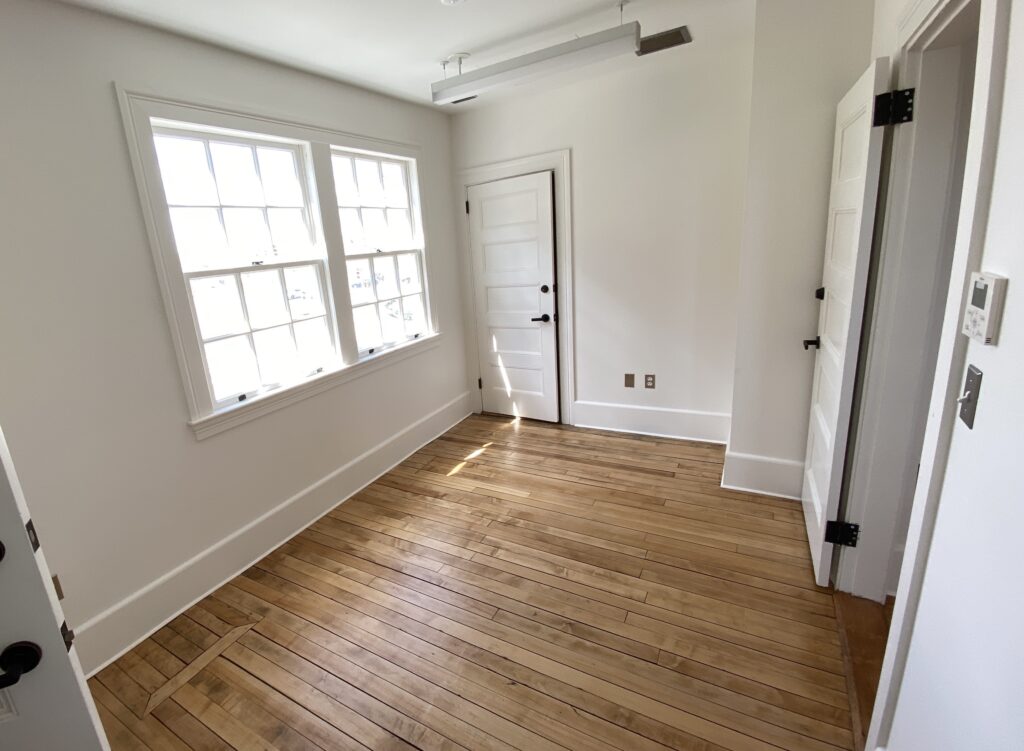
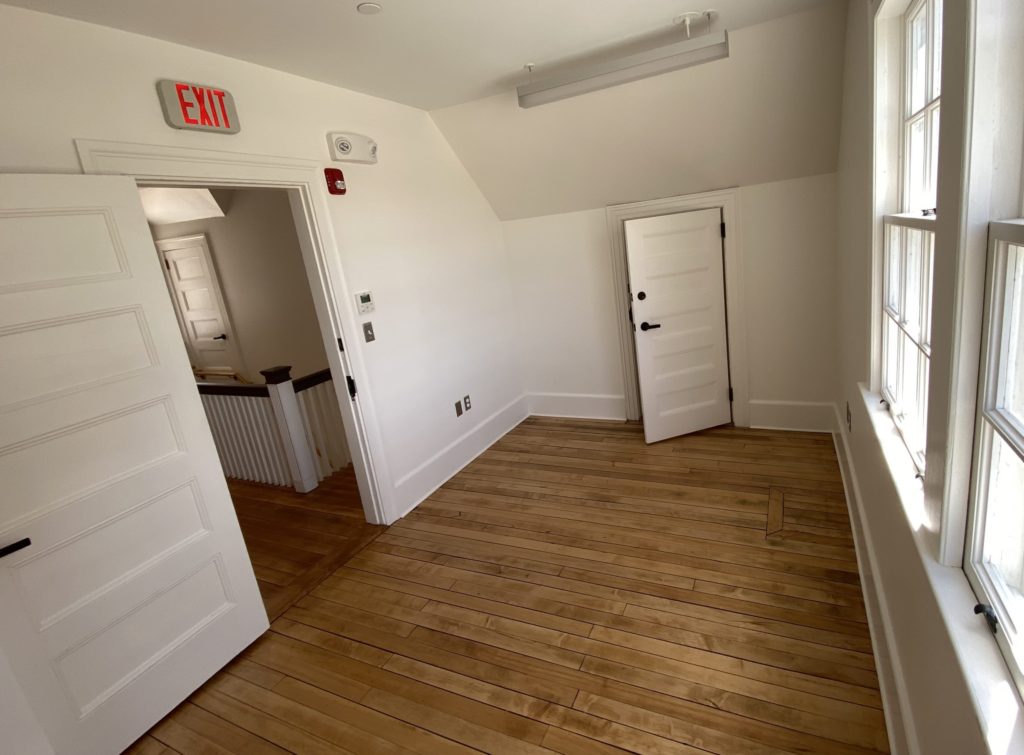
5. Retail Bays Are Ready
What once was a collection of horse stables and storage sheds is about to open for business. Our friends at Bruner/Cott and D.F. Pray preserved the rough, utilitarian character of the stalls by exposing wooden beams and leaving some walls unfinished to highlight the wood grain. To keep the barriers of entry low for our creative operators, we finished the retail bays so that they’re ready for occupancy and are offering flexible lease terms with both short and long commitment options to accommodate the uncertainty that comes with running a small business, particularly during the pandemic. We’re excited for the eclectic mix of tenants who will operate the stalls. Speaking of which…
6. New Tenant!
We’re trilled to welcome our first creative operator to The Speedway! Joining Notch at the complex will be Tipping Cow, a Somerville-based manufacturer of gourmet, allergen-free ice cream. We can’t wait to sample the dozens of delicious flavors that the folks at Tipping Cow have dreamed up (blueberry lime cheesecake, anyone?). All of the ice cream is peanut, tree-nut, and sesame-free, and there is a wide selection of vegan options, as well. We couldn’t be happier that Tipping Cow has chosen to open its second location at The Speedway.
Next month, The Speedway’s doors will open. We hope to see you there.

Architectural Heritage Foundation is a 501(c)3 dedicated to stimulating economic development in disinvested communities through historic preservation. Follow AHF and its projects on Facebook, Twitter, Instagram, and LinkedIn.
Learn more about the Charles River Speedway revitalization project.
